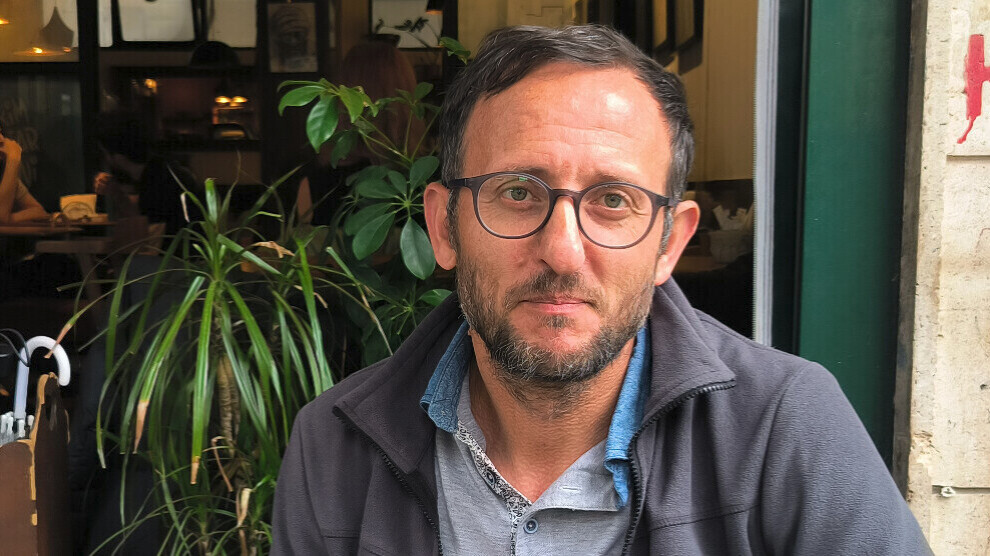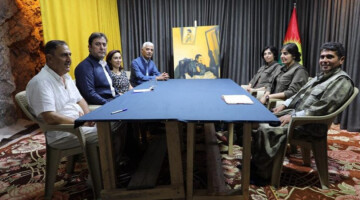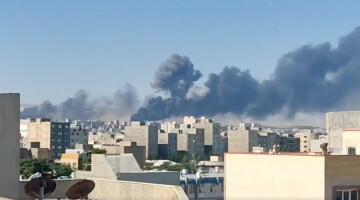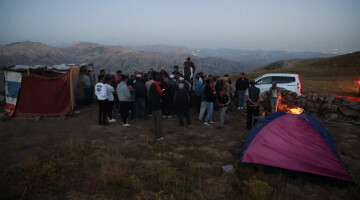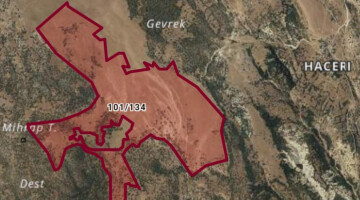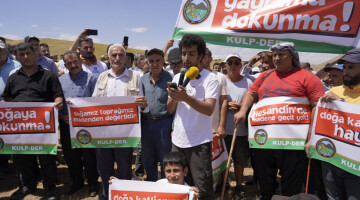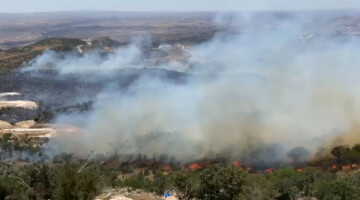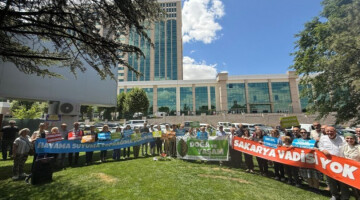The Turkish state is pursuing a model of neo-colonial exploitation in North Kurdistan. Resources are being over exploited, hydroelectric power plants are being built and profits are being channeled to the West. Cemil Aksu from the environmental movement Pollen-Ecology said that the Turkish state's actions in North Kurdistan are responsible for a double destruction. "The first is due to the colonial status of Kurdistan and the resulting denial of the existence of the Kurdish nation and the suppression of its struggle for freedom. The second is due to economic policy."
In this ANF interview, Aksu described the Turkish state as a state of emergency regime that has existed since its founding and which has taken on a new form, particularly after 2015. Aksu explained: "The rulers do not even respect their own constitution and their own laws. Legislative, executive and judicial powers are all united in the presidential palace. All protests and strikes for rights and justice are violently repressed. This emergency regime has targeted local ecological resistance as well as other social opposition movements.”
“Legal and practical resistance are the pillars of the environmental struggle”
Aksu noted that the two main pillars of the ecological struggle are concrete resistance and legal initiatives. The activist continued: “Despite the extraordinary repression, the struggle of the environmental movement at the local level has made progress in both senses. However, it is necessary to see that the local environmental movements have organizational and political limits; that they are experiencing great disorganization in the face of this state of emergency in which the law is suspended, in which the police and military police act as factory security and the companies and the government try to impose their projects by force. To overcome this disorganization, we must call for a renewed mobilization.”
"Companies are plundering the country"
Aksu emphasized the role of companies in the destruction of the environment in Turkey and Kurdistan, pointing out that they could have earned a third, some even double, of their profits. He continued: "For their profits, workers die in occupational murders [the social movements in Turkey and Kurdistan refer to so-called industrial accidents as 'occupational murders'] and occupational diseases. People and nature die due to environmental destruction. Environmental destruction is increasing both regionally and globally. That is why we must call for a new mobilization for the ecological struggle and rise up everywhere."
"Colonial law is being practiced"
Aksu emphasized that colonial law is being practiced in Kurdistan and a double policy of destruction is being pursued: "It is about the colonial status of Kurdistan and the denial of the Kurdish nation based on it and the suppression of its struggle for equality and freedom. The second factor is the role of capital in the international division of labor and the economic policies associated with it. Due to the first factor, the Kurdistan Region has been subjected to an economic and political depopulation policy for many years. 'Investments' such as the GAP project [South East Anatolia Project] and other dams serve both as a means of 'security policy' and as a means of turning the region's labor and natural energy into a resource for capital. This double policy of destruction is intended to dissolve the unity of the Kurdish nation and to use the disorganized population as cheap labor in the industries, industrial areas and service sectors in the cities. This is not just some claim; these are things that the writers of capital have written plans about."
"If colonialists destroy the environment, then we must defend it"
Aksu pointed out that colonialism is a system in which both the land is brutally exploited and all living beings are subjected to the most brutal violence. "We have seen and experienced thousands of forms of this. There is a very serious drought problem in Kurdistan. The fertile lands in the Tigris basin are now being planted with Bayer's genetically modified corn. The forests on the slopes of Cûdî continue to be cut down. Every summer, oak forests are burned down for 'safety reasons'. Companies can carry out all kinds of activities without complying with the law. On the banks of the Murat, a tributary of the Euphrates, companies and the state are promoting cyanide gold mining, such as in Iliç (Licik). The Tigris and Euphrates basins have become environmental devastation areas due to mining, urban waste and industrial agriculture. Therefore, the fight against colonialism must necessarily be an ecological fight. If the colonialists want to make the land barren, we have a duty to defend the forests, rivers and agricultural land. How can we live on a deforested, withered, barren land! "
"The environmental movement tries to protect the tree, but loses sight of the forest"
Aksu stated that the most fundamental weakness of the environmental movement in Turkey is that it is exclusively problem-oriented; therefore, it only acts in a project- and campaign-oriented manner. "The question must be how it can be that one day a company can be on the doorstep of one's own village. The question of where the company gets this power from, which political and economic networks give it this strength. The political aspects of the struggle and systemic dimension are always put on the back burner due to the 'urgency' of the issue, or not put on the agenda at all. So while you try to protect the tree, you lose sight of the forest."
Aksu said that an ecological perspective should see all living things as part of a whole and transcend national, religious, etc. boundaries. He said that ecological awareness in Turkey is quite backward in this regard. Thus, those who protected the forest hunted the animals in it and those who fought for animal rights did not fight for their habitat, the forests. Vegans who fought against speciesism did not care about the exploitative conditions of workers; those who fought against hydroelectric power plants, energy plants and mines in their own village remained indifferent to the plight of those who experienced the same problems elsewhere.
"The environment is not just the concern of activists"
Aksu explained that it was necessary to break free from the superficial view that environmental issues were the problem of "environmentalists". He said: "We must stop seeing ecology only as a matter of 'trees and flowers'. At least 20,000 workers die every year as a result of slow violence resulting from the dirty activities of companies. While textile companies in Denizli and industrial complexes in Uşak are increasing their profits, the fields, the villagers and especially the children are being poisoned and dying from the ecological destruction in the Büyük Menderes Basin, where the wastewater from these factories is discharged. The Iliç disaster not only killed nine workers, but in the medium to long term it will kill all living things in the Euphrates Basin. The curve of the ecological crisis does not run in waves like the economic crisis, but is constantly rising."
"Organization is urgently needed"
Aksu therefore pointed out how important it is to organize in accordance with the seriousness and urgency of the situation. He said: "In the established organizations, some principles such as democratic participation, gender equality, regular meetings, control of the decisions made and a sense of responsibility must be consistently implemented. Undoubtedly, the fight for ecology, like any fight, progresses through its expansion. It is a practice. Learning by doing, and acting by learning, but that cannot happen spontaneously. We must look at who came before us, what they achieved, why they were defeated, etc., and learn from that. We must learn from our mistakes and call for mobilization for the new era."

